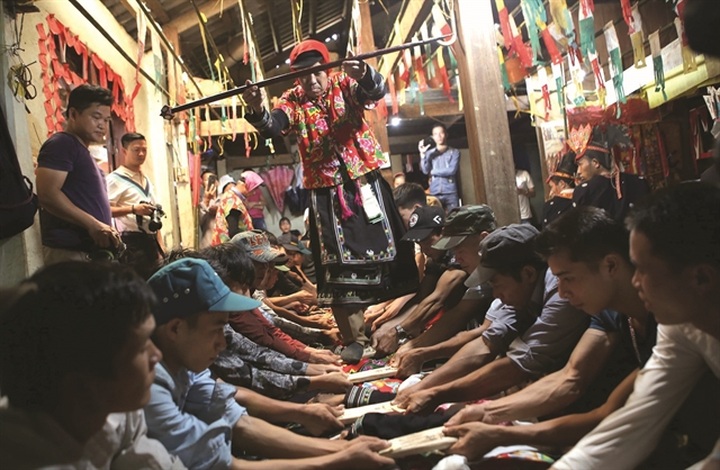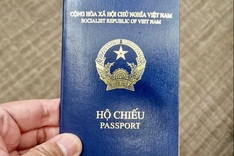
The entire community joins the important ceremony. — VNA/VNS Photos Chu Hiếu
In Dao language, “tẩu” means “rank”, while “sai” means “master”.
"Tẩu Sai" means giving a master rank, recognising someone reaching a high level of maturity.
In the Dao group’s tradition, rank or title is very important, which marks the moment someone can have an important voice in the community and have the right to host various important rituals.
The person most honoured at the ceremony is highly respected by the community and a “senior master” who is a high-ranked shaman with enough prestige to host important ceremonies for.
Due to its complexity and long preparation, the community holds a Tẩu Sai ceremony only once every 30 years or so.
To prepare for Tẩu Sai ceremony, the head of the extended family will meet with the involved households to choose the matured people and the right time for the ceremony.
Tẩu Sai ceremony is an important event in the community of Dao Tiền ethnic minority group.
The chosen people will then prepare costumes and practise praying ceremonies to be able to host important events. The preparation period may last for half a year to a year.
The Tẩu Sai ceremony includes two rituals: Sìn Pè Đàng and Tẩu Sai.
The former is conducted after preparing costumes, wine, rice, vegetables, other food, incense and paper for writing prayers on. The head of the extended family will visit a master (who is often of another family) to ask for his help to choose a suitable day for the latter ceremony.
Sìn Pè Đàng is held one to three months before the main event Tẩu Sai, which aims to inform the gods and ancestors that the extended family has prepared for the big day.
From that time, the whole extended family leads monks' lives to clean themselves for the ritual.
The Sìn Pè Đàng ritual is often held for two days and one night, hosted by three shamans.
Fourteen shamans host the Tẩu Sai ceremony and each of them will bring up to three helpers.
The shamans write two kinds of prayer papers: for living people and dead people.
A Tẩu Sai ceremony often lasts three to five nights with various activities, including prayer ceremonies to inform ancestors and gods about the important event.
Today, the main ceremony has been shortened down to two or three days with fewer procedures and expenses.
The ceremony also aims to wish for peace, prosperity and luck for the family.




















